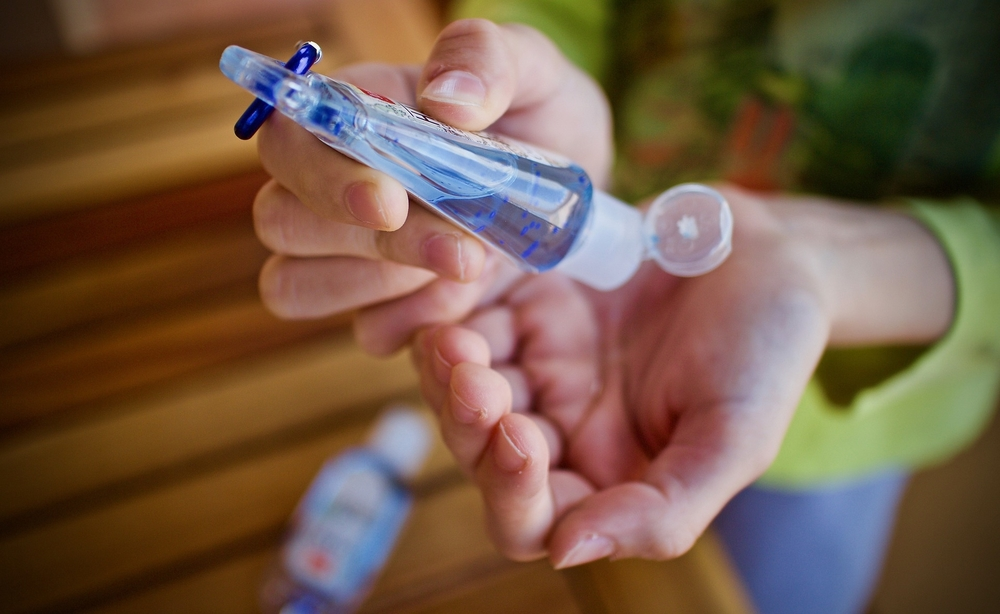By: Jayatheswary A/P Parnealsivam,
Lecturer and Programme Leader, School of Allied Health Sciences
The spread of the COVID-19 virus can be stopped by washing hands regularly with soap and water for 20 seconds. This can be done especially after going to the bathroom, before eating, and after coughing, sneezing, or blowing our noses. Hand sanitisers can be used if soap and water are not available. The Centres for Disease Control and Prevention recommend using alcohol-based hand sanitisers containing at least 60% alcohol to help avoid getting sick and spreading germs to others.
To use it correctly, rub the hand sanitiser all over the hands, making sure to get between the fingers and on the back of the hands. Do not wipe or rinse off the hand sanitiser before it is dry. Do not use the hand sanitiser if hands are visibly dirty or greasy. Wash hands with soap and water instead.
If alcohol-based hand sanitisers are used, keep these safety tips in mind.
Hand Sanitisers Are Drugs
Hand sanitisers are regulated as over-the-counter (non-prescription) drugs by the American Food and Drug Administration (FDA). If alcohol-based hand sanitisers are used, read and follow the drug-fact label, particularly the warning section.
Store hand sanitisers out of the reach of children and pets, and children should use it only with adult supervision.
Keep Hand Sanitisers Out of Your Eyes
Be especially careful not to get hand sanitisers in the eyes because they can cause burning and damage the surface of the eye. Watch young children around dispensers containing hand sanitisers, which are often mounted at eye-level and can splash.
If hand sanitisers get into the eyes, rinse the eyes thoroughly with water as soon as possible, and visit the doctor based on the severity of the eye’s condition.
Use Hand Sanetisers in Well-Ventilated Areas
If hand sanitisers are used in closed areas such as a car, open the windows to improve ventilation until the hand sanitiser is dry.
Supervise Children’s Use of Hand Sanitisers
Hand sanitisers should not be ingested. This is particularly important for young children, especially toddlers, who may be attracted by the pleasant smell or brightly coloured bottles of hand sanitisers.
Drinking even a small amount can cause alcohol poisoning in children (but there is no need to be concerned if children eat with or lick their hands after using hand sanitisers).
Beware of alcohol-based hand sanitisers packaged in containers that may appear as food or drinks, and of those that contain food flavours or fragrances. The FDA has discovered that some hand sanitisers are being packaged in children’s food pouches, water bottles, and alcohol bottles such as beer cans and liquor and wine bottles.
The FDA has also found hand sanitisers that contain food flavours or fragrances such as chocolate or raspberry. Eating or drinking these products can cause serious injury or death.
Do not allow pets to swallow hand sanitisers. If the pet happens to swallow the hand sanitiser accidentally, immediately contact the veterinarian.
Hand Sanitisers are Flammable
Keep hand sanitisers away from heat and flames. When using them, rub hands completely dry before performing activities that may involve heat, sparks, static electricity, or open flames.
Check the FDA’s Do-Not-Use List
The FDA has discovered serious safety concerns with some hand sanitisers during testing. This includes those:
· contaminated with potentially toxic types of alcohol
· that do not contain enough active ingredient (ethyl alcohol or isopropyl alcohol)
· with labels containing false, misleading, or unproven claims
Don’t Make Your Own Hand Sanitiser
The FDA doesn’t recommend that consumers make their own hand sanitisers. If made incorrectly, hand sanitisers can be ineffective, or worse. For example, there have been reports of skin burns from homemade hand sanitisers.
Also, adding alcohol to non-alcohol hand sanitisers is unlikely to result in a defective product. Moreover, using disinfectant sprays or wipes on skin may cause skin and eye irritation. Disinfectant sprays and wipes are intended to clean surfaces, not people or animals.
Hand sanitisers are a convenient alternative when hand-washing with soap and water isn’t possible. The Coronavirus spread can be controlled with simple hygiene measures.
Reference: FDA. (2021, May 20). Safely Using Hand Sanitizer. https://www.fda.gov/consumers/consumer-updates/safely-using-hand-sanitizer

